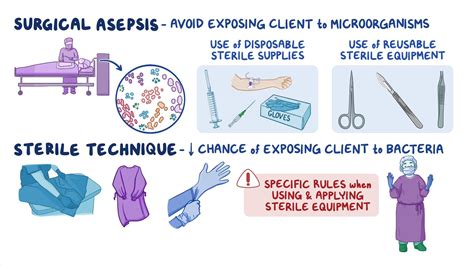The healthcare industry relies heavily on the skills of various medical professionals to ensure the smooth execution of surgeries and patient care. Two crucial roles that often get confused with one another are sterile processing technicians and surgical technologists. While both careers are essential to the success of surgical procedures, they have distinct responsibilities, requirements, and work environments. In this article, we will delve into the key differences between sterile processing technicians and surgical technologists, helping you decide which career path suits your interests and skills.
Understanding the Roles
Before we dive into the differences, let's briefly explain the roles of sterile processing technicians and surgical technologists.
Sterile processing technicians, also known as central service technicians, are responsible for cleaning, disinfecting, and sterilizing medical equipment and instruments. They work behind the scenes to ensure that all instruments and equipment are safe for use in surgical procedures.
Surgical technologists, on the other hand, work directly in the operating room, assisting surgeons and nurses during surgeries. They prepare the operating room, set up equipment, and pass instruments to the surgical team.

Key Differences
Now that we have a basic understanding of both roles, let's explore the key differences between sterile processing technicians and surgical technologists.
1. Work Environment
One of the most significant differences between the two careers is the work environment. Sterile processing technicians typically work in a sterile processing department, which is usually located away from the operating room. They spend most of their time in a controlled environment, where they clean, disinfect, and sterilize medical equipment.
Surgical technologists, on the other hand, work directly in the operating room, where they are exposed to a fast-paced and dynamic environment. They must be able to think on their feet and respond quickly to changing situations.
2. Responsibilities
The responsibilities of sterile processing technicians and surgical technologists also differ significantly. Sterile processing technicians are responsible for:
- Cleaning and disinfecting medical equipment
- Sterilizing instruments and equipment
- Packaging and storing sterile supplies
- Maintaining inventory of sterile supplies
Surgical technologists, on the other hand, are responsible for:
- Preparing the operating room for surgery
- Setting up equipment and instruments
- Passing instruments to the surgical team during surgery
- Maintaining a sterile environment during surgery
3. Education and Training
The education and training requirements for sterile processing technicians and surgical technologists also differ. Sterile processing technicians typically require a post-secondary certificate or diploma in sterile processing, while surgical technologists require an associate's degree or a post-secondary certificate in surgical technology.
4. Certification
Certification is also an important consideration for both careers. Sterile processing technicians can obtain certification through the Certification Board for Sterile Processing and Distribution (CBSPD), while surgical technologists can obtain certification through the National Board of Surgical Technology and Surgical Assisting (NBSTSA).
5. Salary and Job Outlook
Finally, the salary and job outlook for sterile processing technicians and surgical technologists differ. According to the Bureau of Labor Statistics, the median salary for sterile processing technicians is around $44,000 per year, while the median salary for surgical technologists is around $51,000 per year.
The job outlook for both careers is also promising, with the Bureau of Labor Statistics predicting a 3% growth in employment opportunities for sterile processing technicians and a 7% growth in employment opportunities for surgical technologists.

Gallery of Sterile Processing and Surgical Tech






FAQs
What is the difference between a sterile processing technician and a surgical technologist?
+A sterile processing technician is responsible for cleaning, disinfecting, and sterilizing medical equipment, while a surgical technologist assists surgeons and nurses during surgeries.
What education and training are required to become a sterile processing technician?
+A post-secondary certificate or diploma in sterile processing is typically required to become a sterile processing technician.
What certification is available for surgical technologists?
+Surgical technologists can obtain certification through the National Board of Surgical Technology and Surgical Assisting (NBSTSA).
In conclusion, while both sterile processing technicians and surgical technologists play critical roles in the healthcare industry, they have distinct responsibilities, requirements, and work environments. By understanding the key differences between these two careers, you can make an informed decision about which path suits your interests and skills. Whether you choose to become a sterile processing technician or a surgical technologist, you can rest assured that you will be making a valuable contribution to the healthcare industry.
